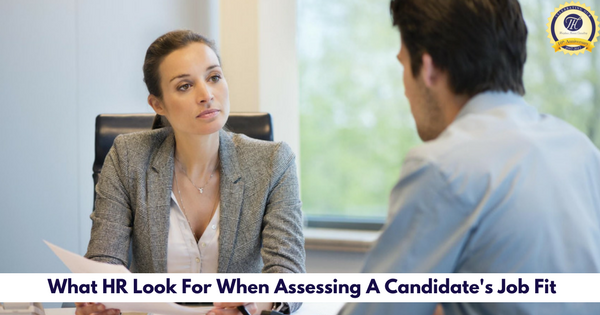I’m learning the art of hiring. And every time I run a search for a client, I learn the craft a little more. Now that we have interviewed over 10,000 interviews, I’m beginning to ask three basic questions about job fit as I assess a candidate for a particular job.
When I sit down with a candidate, I can tell pretty quickly if they’ve thought long and hard about the role and if it’s a good fit for them. It’s not that I’m smarter than anyone else; I just have a lot of reps under my belt when it comes to reading people quickly.
When I’m interviewing a candidate, these are some of the main categories I’m listening for in order to see if they are just applying to any job that comes their way or if they are intentionally thinking about job fit.
- Has their previous experience prepared them for this role?
I participated in the #AskForbes twitter chat a couple weeks ago. One of the questions that got a ton of engagement was about hiring for education versus hiring for experience. While I do think education is important and and can be immensely helpful, I would choose experience every time.
I believe size and scope of previous experience is one of the key determining characteristics for success in a future role. As the saying goes, “Past performance is the best indicator of future behavior.” While a few business writers might disagree, I’ve seen this truth played out time and time again.
It’s also important to note that the saying is “past performance,” not past success. In fact, I love asking people to tell me about a time they failed and what they learned from it. Hearing their story helps me understand what behavior they displayed when they failed. Did they take responsibility, fix the failure, and grow from the experience, or did they blame-shift and play the victim?
I’m not looking for someone who has a 100% success rate doing the exact same role. I’m looking for someone who has a track record of positivity, problem-solving, and growth when facing new challenges.
- Have they developed themselves and the people around them?
Not everyone on your staff needs to desire to lead a team. Every team needs both great leaders and great followers. However, I would argue that now more than ever, soft skills are vital to becoming an irreplaceable team member.
When I’m interviewing a candidate, I’m looking for someone who genuinely enjoys helping people find solutions, because whether you work for a church or for a tech startup, ultimately, we’re all helping people find solutions. I believe this so strongly, that “solution-side living” is one of the core values at my company.
I see way too many people make the mistake of judging a candidate solely based on output. While results are important (see my point above), I believe that it’s invaluable to hire team members who value people and investing in them.
- Does the organizational culture match the candidate’s wiring?
I’ve said it before, and I’ll say it a million times: Culture trumps competency every time. When I’m interviewing a candidate, I’m looking for someone who has researched the organization, evaluated its culture, and has the self awareness to know whether it matches their own wiring.
Questions like, “This is a well-established organization of fifty years. I like to move pretty fast. Do you think that will be a problem?” or, “I’m big on systems and processes. I noticed this is a young company. Do they have sustainable systems and processes in place to support long-term growth?” show me the candidate is being discerning about the organizational culture and whether or not it would be a fit for them.
Both the employer and potential employees need to spend a lot of time and energy assessing culture fit in order to ensure it’s a good fit for both parties. If a culture fit isn’t there between the company and the candidate, both parties should have the wisdom to walk away.
The more a candidate can honestly evaluate their own experience and articulate it to me, the more realistic the expectations of both parties are throughout the interviewing and hiring process. If you look for candidates who are intentionally considering culture, chemistry, and competency fit throughout their job search, you’re much more likely to hire people with the discernment and soft skills to help take both them and your organization to the next level.
Source: http://bit.ly/2eIamSU
